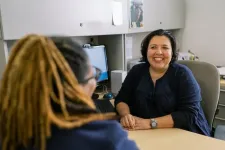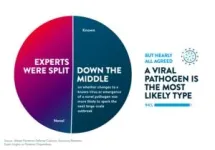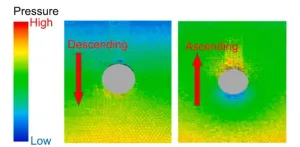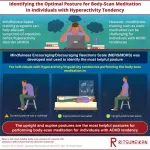(Press-News.org) Historically, South Carolina has had some of the highest rates of intimate partner violence, or IPV, in the U.S. IPV encompasses any physical or sexual violence, stalking and psychological aggression by a current or previous partner or spouse.
“There is an epidemic of intimate partner violence in South Carolina,” said Leslie A. Lenert, M.D., associate provost of Data Science and Informatics and director of the Biomedical Informatics Center at the Medical University of South Carolina.
To address that epidemic, Lenert partnered with clinical psychologist Alyssa A. Rheingold, Ph.D., family physician Vanessa Diaz, M.D., and health services researcher Kit N. Simpson, DrPH, to develop electronic health record (EHR)-based screening for IPV, with funding from the Agency for Healthcare Quality and Research. They report in JAMA Network Open that this EHR-based screening, which prioritized confidentiality, was 10 times more effective than traditional oral screening.
Screening for IPV in primary care is recommended by the U.S. Preventive Services Task Force, as it can help to identify those at risk. However, IPV screening is often underused due to hectic clinical schedules and, when used, performed orally. These oral screenings lack privacy, which can cause victims to feel uncomfortable reporting.
Improved screening is urgently needed because IPV can have long-lasting effects on victims and their families.
“Victims in violent relationships are at risk for long-term psychological difficulties, like post-traumatic stress disorder, and children witnessing domestic violence also face challenges,” explained Rheingold, professor in MUSC’s Department of Psychiatry and Behavioral Sciences.
Though both men and women can be subjected to IPV, there is a higher prevalence among women, and women are more likely to be severely injured or killed. For this reason, the team worked with advisory boards to adapt a screener for physical and sexual violence and electronically administered it exclusively to women.
“We consulted with an advisory board of national experts, as well as an advisory board of victims and survivors of intimate partner violence, to gather their input on what screening tools would be the most successful,” said Rheingold.
After confirming the best approach, they launched their screener in primary care centers across South Carolina.
As a family physician, Diaz, chief of MUSC’s Primary Care Integrated Center of Clinical Excellence, had first-hand experience with the necessity and difficulty of incorporating IPV screening.
“It was important to give the patients a safe space through technology, where they felt comfortable answering these very personal and emotional questions,” she said. “At the same time, the screening needed to be streamlined into existing workflows because, unfortunately, providers have a lot of competing demands.”
Instead of having primary care staff or providers orally ask patients about IPV, the patients were handed a computer with a confidential questionnaire without their partners present. This lessened the chance of patients feeling judged by staff members or intimidated by their partners. Visit notes about IPV and physician-patient communications were also stored in a confidential area of the EHR, which the patient and provider could access but not the spouse or partner.
Additionally, providers were given best practices for discussing IPV with patients as well as referral resources where women could seek further help.
“The training and decision support given to providers helped us to address any needs the patient had,” explained Diaz.
In the end, the MUSC team’s EHR-based screening proved to be 10 times more effective than traditional oral screening.
Not only did this screening increase the identification of women enduring IPV, but it also helped to normalize IPV screening.
“I was pleasantly surprised that our staff and patients were thankful that we were asking about IPV, even if it didn’t apply to them, because they know it’s a big problem and that screening is an important first step toward getting people the help they need,” said Diaz.
To help women to take that first step, this team is working toward bridging the gap in patient reporting.
“We aim to make the doctor’s office a safe place where women can discuss IPV with their provider and move forward with the difficult task of escaping an abusive relationship,” said Lenert.
The researchers realize that their EHR-based screening is not a quick fix for IPV. They emphasize the importance of empowering victims to seek help.
“We recognize that most situations are complex, and we want people experiencing IP
V to know that there is support available to help them to feel safe and get to a place of safety,” stressed Rheingold.
The 24/7 National Domestic Violence Hotline can be reached at 1-800-799-7233.
###
About MUSC
Founded in 1824 in Charleston, MUSC is the state’s only comprehensive academic health system, with a unique mission to preserve and optimize human life in South Carolina through education, research and patient care. Each year, MUSC educates more than 3,200 students in six colleges – Dental Medicine, Graduate Studies, Health Professions, Medicine, Nursing and Pharmacy – and trains more than 900 residents and fellows in its health system. MUSC brought in more than $358.9 million in research funds in fiscal year 2024, leading the state overall in research funding. MUSC also leads the state in federal and National Institutes of Health funding. For information on academic programs, visit musc.edu.
As the health care system of the Medical University of South Carolina, MUSC Health is dedicated to delivering the highest-quality and safest patient care while educating and training generations of outstanding health care providers and leaders to serve the people of South Carolina and beyond. Patient care is provided at 16 hospitals (includes owned or governing interest), with approximately 2,700 beds and five additional hospital locations in development, more than 350 telehealth sites and nearly 750 care locations situated in all regions of South Carolina. In 2024, for the 10th consecutive year, U.S. News & World Report named MUSC Health University Medical Center in Charleston the No. 1 hospital in South Carolina. To learn more about clinical patient services, visit muschealth.org.
MUSC has a total enterprise annual operating budget of approximately $7.1 billion. The 31,000 MUSC family members include world-class faculty, physicians, specialty providers, scientists, students, contract employees, affiliates and care team members who deliver groundbreaking education, research and patient care.
END
Intimate partner violence: Preserving patient privacy saves lives
Electronic health record-based screening for intimate partner violence at the Medical University of South Carolina prioritizes confidentiality.
2024-09-17
ELSE PRESS RELEASES FROM THIS DATE:
Moving particle simulation-aided soil plasticity analysis for earth pressure balance shield tunnelling
2024-09-17
Infrastructures often suffer severe damage due to geotechnical hazards of both natural kinds such as floods or earthquakes and man-made ones like underground construction work and excavations. The fields of civil engineering and disaster risk management have extensively studied methods to prevent these risks and are still looking for more effective ways of avoiding large-scale deformations associated with said hazards. The advent of computer-aided simulations has provided researchers with particle-based methods such as moving particle ...
Identifying body-scan postures suitable for people with hyperactivity tendency
2024-09-17
ADHD is a developmental condition of brain with symptoms such as inattention, hyperactivity or impulsivity. People with ADHD lack the ability of self-control and experience anxiety, depression, academic failure, and low self-confidence. These symptoms can be alleviated by a holistic approach such as mindfulness-based stress reduction and mindfulness-based cognitive therapy. These practices encourage patients to pay attention to the present moment with purpose and without judgment. However, these practices involving meditation require sitting in certain postures which can be challenging for patients with high ADHD tendency.
To address this, ...
Indiana University selects Symplectic Elements as faculty activity reporting system
2024-09-17
Digital Science, a technology company serving stakeholders across the research ecosystem, is pleased to announce that Indiana University has selected Symplectic Elements as its new faculty activity management and reporting system.
This strategic decision marks a significant advancement toward the university’s goals of streamlining the management and reporting of the work and accomplishments of its faculty.
Indiana University is internationally known for outstanding research and its world-class degree programs, from business and health to STEM and the arts at its flagship campus in Bloomington, the expanding ...
Stephenson Prize for Innovation in Pancreatic Cancer Research launched with $150 million gift to City of Hope
2024-09-17
LOS ANGELES — City of Hope®, one of the largest and most advanced cancer research and treatment organizations in the U.S. and ranked among the nation’s top 5 cancer centers by U.S. News & World Report, has received a historic $150 million gift from entrepreneurs and philanthropists A. Emmet Stephenson Jr. and his daughter Tessa Stephenson Brand to immediately fund pancreatic cancer research.
The centerpiece of this gift is the $1 million Stephenson Prize, one of the largest ...
New understanding of the limits on nano-noise
2024-09-17
Thanks to nanoscale devices as small as human cells, researchers can create groundbreaking material properties, leading to smaller, faster, and more energy-efficient electronics. However, to fully unlock the potential of nanotechnology, addressing noise is crucial. A research team at Chalmers University of Technology, in Sweden, has taken a significant step toward unraveling fundamental constraints on noise, paving the way for future nanoelectronics.
Nanotechnology is rapidly advancing, capturing ...
Graphite oxidation experiments reveal new type of oscillating chemical reaction
2024-09-17
A reaction that puzzled scientists for 50 years has now been explained by researchers at Umeå University. Rapid structural snapshots captured how graphite transforms into graphite oxide during electrochemical oxidation, revealing intermediate structures that appear and disappear over time. The researchers describe this as a new type of oscillating reaction.
Oscillating chemical reactions are fascinating to watch and important for developing an understanding of how complex systems work, both in chemistry and in nature. Classical visual examples of such reactions show how the colors of a solution change back and forth, cycling ...
How does a tiny shrimp find its way home in a vast ocean? Study finds it’s down to their cave’s special smell
2024-09-17
Homing is an animal’s ability to navigate towards an original location, such as a breeding spot or foraging territory. Salmon and racing pigeons are famous for homing, but similar behaviors occur in groups as diverse as bees, frogs, rats, and sea turtles. There, homing individuals are known or suspected to rely on landmarks, the Earth’s magnetic field, or the sky’s pattern of polarized light to find their way back.
Another group known to display homing are cave-dwelling mysid shrimp, also known as possum shrimp for the pouches in which females carry ...
‘Marine identity’ can help restore the ocean
2024-09-17
People’s deep connection with the ocean – their “marine identity” – can help us reset society’s relationship with the seas, new research led by Dr Pamela Buchan, from the University of Exeter, suggests.
A diverse, international group of marine researchers and practitioners met to discuss marine identity – based on testimony and photos from multiple countries.
The group included Diz Glithero of the Canadian Ocean Literacy Coalition, Dr Emma McKinley of Cardiff University who helped deliver the workshop, and others from across Europe, Africa, Indonesia, North America, and Australasia.
They found many common themes, including traditions ...
Evidence shows that estrogen blocker treatment does not increase the risk of coronary heart disease in breast cancer patients
2024-09-17
New evidence shows that extended estrogen suppression treatment using an aromatase inhibitors for hormone receptor-positive postmenopausal breast cancer is safe; it does not increase the risk of coronary artery calcification, a sign of active coronary atherosclerosis, as some prior studies had indicated. An article in the Canadian Journal of Cardiology, published by Elsevier, details the findings from a retrospective, cross-sectional observational study that investigated the association between the duration of aromatase inhibitor treatment and the severity of coronary artery calcification in postoperative breast cancer patients.
Coronary ...
Survey shows 25% of adults consider weight loss drug use without prescription
2024-09-17
COLUMBUS, Ohio – Injectable weight loss drugs are popular right now but can be hard to get because they are in short supply or too expensive without insurance. The result is that some people are skipping the doctor’s office and reaching out to potentially unreliable sources such as unlicensed online pharmacies or telehealth sites, which could expose patients to risks.
A new national survey from The Ohio State University Wexner Medical Center reveals 1 in 4 (25%) of 1,006 adults surveyed would consider using an injectable weight loss medication without consulting their doctor. The reasons ...
LAST 30 PRESS RELEASES:
A “smart fluid” you can reconfigure with temperature
New research suggests myopia is driven by how we use our eyes indoors
Scientists develop first-of-its-kind antibody to block Epstein Barr virus
With the right prompts, AI chatbots analyze big data accurately
Leisure-time physical activity and cancer mortality among cancer survivors
Chronic kidney disease severity and risk of cognitive impairment
Research highlights from the first Multidisciplinary Radiopharmaceutical Therapy Symposium
New guidelines from NCCN detail fundamental differences in cancer in children compared to adults
Four NYU faculty win Sloan Foundation research fellowships
Personal perception of body movement changes when using robotic prosthetics
Study shows brain responses to wildlife images can forecast online engagement — and could help conservation messaging
Extreme heat and drought at flowering could put future wheat harvests at risk
Harlequin ichthyosis: a comprehensive review of pathogenesis, diagnosis, and management
Smithsonian planetary scientists discover recent tectonic activity on the Moon
Government censorship of Chinese chatbots
Incorporating a robotic leg into one’s body image
Brain imaging reveals how wildlife photos open donor wallets
Wiley to expand Advanced Portfolio
Invisible battery parts finally seen with pioneering technique
Tropical forests generate rainfall worth billions, study finds
A yeast enzyme helps human cells overcome mitochondrial defects
Bacteria frozen in ancient underground ice cave found to be resistant against 10 modern antibiotics
Rhododendron-derived drugs now made by bacteria
Admissions for child maltreatment decreased during first phase of COVID-19 pandemic, but ICU admissions increased later
Power in motion: transforming energy harvesting with gyroscopes
Ketamine high NOT related to treatment success for people with alcohol problems, study finds
1 in 6 Medicare beneficiaries depend on telehealth for key medical care
Maps can encourage home radon testing in the right settings
Exploring the link between hearing loss and cognitive decline
Machine learning tool can predict serious transplant complications months earlier
[Press-News.org] Intimate partner violence: Preserving patient privacy saves livesElectronic health record-based screening for intimate partner violence at the Medical University of South Carolina prioritizes confidentiality.








